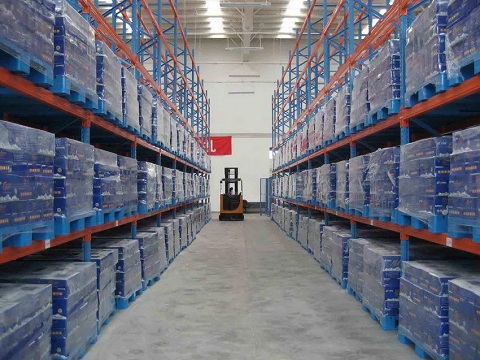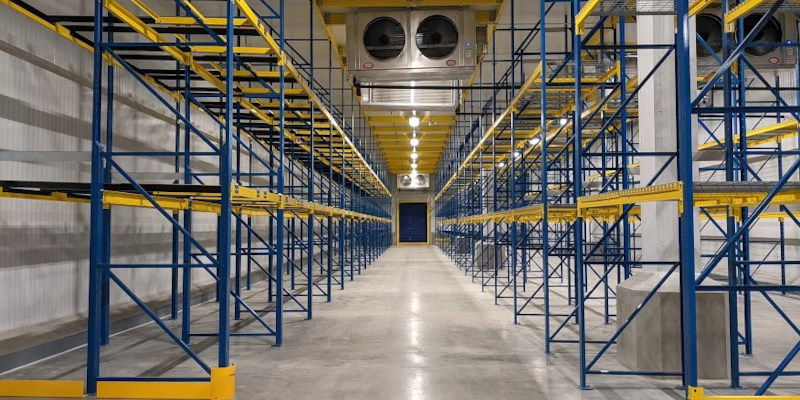Warehouse managers must carefully consider the material choice of their pallet racks, as it can impact the efficiency and functionality of their storage systems and warehouse operations. Each and every material, typically being wood, plastic, or metal, provides its own set of advantages and disadvantages to warehouses depending on their needs and specifications.
Wood pallets are currently the most frequently used pallet material in the industrial warehouse industry, often favored for their cost-effectiveness and easy accessibility. Wood pallets can also be easily repaired when needed, at a low cost and within a quick time frame. However, warehouse employees are likely to get cuts, splinters, and other wounds from the rough material of wood. Leading to injuries among warehouse staff, this can be a major disadvantage for businesses prioritizing employee safety and working to minimize injuries within the warehouse. Wood also requires repairs more often than other pallet rack materials, as it is the most susceptible to wear and tear over time and termite damage out of the three basic options. Known for its low prices and ease of access, wood pallets are a great option for a business needing a fast and cheap storage solution with limited regard to aesthetics and long-term storage.
Plastic pallets are known for their lightweight composition, standard price, and resistance to environmental factors. Plastic pallets are much cleaner and hygienic than wood racks, making them well-suited for industries such as food/beverage and pharmaceutical industries where cleanliness is absolutely essential. Plastic pallets are resistant to many chemicals, create a reduced risk for workplace injuries, and do not require frequently scheduled repairs like wood racks do. However, because plastic is such a flexible material, it has limitations in terms of load capacity compared to wood or metal alternatives. Plastic pallets are not as sturdy or durable as wood or metal pallets, which can be a drawback for warehouses housing heavy and bulky items. Plastic is a fairly-priced material that can be of great value to businesses with hygienic standards carrying smaller products that will not disrupt the load capacity requirements of these pallet racks.
Metal pallets, typically made from steel, are known for their profound strength and durability in comparison to other storage materials. Metal pallets can withstand heavy loads and provide long-term capacity support, making them ideal for warehouses dealing with heavy and large items in their inventory. Because of their vast durability, metal pallets do not require routine maintenance and are therefore considered to last a long time before the need for replacement. The major drawback regarding metal pallets is their initial price tag, which is typically much higher than wood or plastic options; especially if high-quality metals are being used. With its high capacity loads and durable resistance, metal pallets are a great choice for businesses requiring long-term storage solutions of heavy and bulky items.
The decision between wood, plastic, and metal pallet racks relies solely on your specific business and its needs regarding storage solutions. Factors such as budget, load requirements, environmental conditions, and aesthetic preferences all play a crucial role in choosing the most effective and suitable material for your business. Here at Diversified Rack and Shelving, we are here to help you determine the best type of pallet racking to cooperate with your warehouse needs. Call or email us today to begin exploring your options and receive your free quote!






